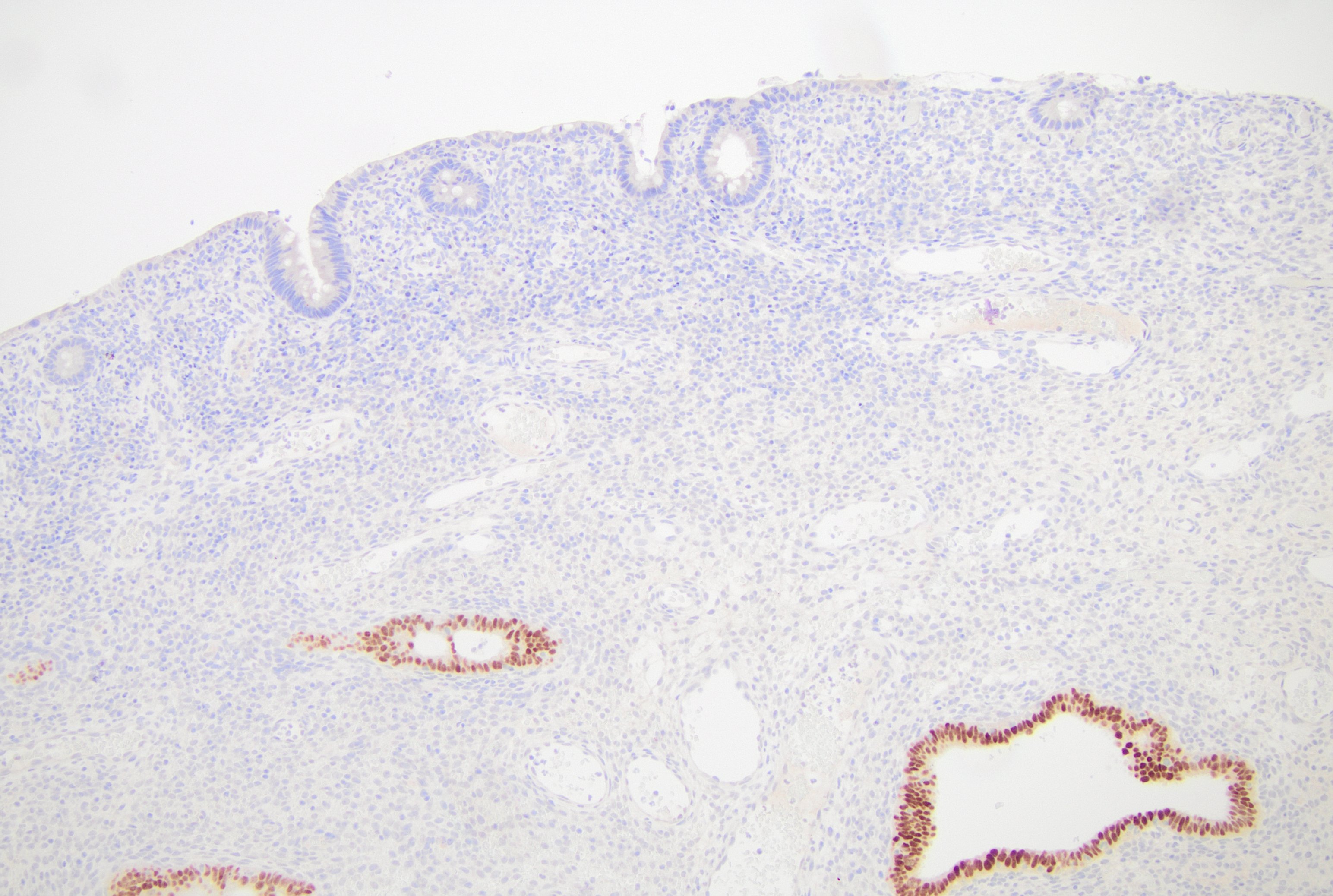Sunday Poster Session
Category: Colon
P0390 - Hematochezia After Hysterectomy: Unusual Presentation of Rectosigmoid Endometriosis

Alex Prevallet, DO
HCA Healthcare Riverside Community Hospital
Riverside, CA
Presenting Author(s)
1Liberty Union College of Osteopathic Medicine, Riverside, CA; 2Riverside Community Hospital, Riverside, CA; 3HCA Healthcare Riverside Community Hospital, Riverside, CA; 4United Medical Doctors, Riverside, CA; 5HCA Riverside Community Hospital, Riverside, CA; 6University of California Irvine, Orange, CA
Introduction:
Endometriosis is characterized by ectopic endometrial tissue, most commonly effecting the pelvic peritoneum, ovaries, and rectovaginal septum. The prevalence of endometriosis in women of reproductive age ranges between 6-11% and annual incidence rates is around 0.1%-0.3%. The incidence rate of gastrointestinal (GI) bleed due to endometriosis is less than 1 per 100,000. We present a patient with persistent hematochezia and history of hysterectomy that was found to have recto-sigmoid endometriosis on colonic polyp resection.
Case Description/
Methods: A 49-year-old female who presented to clinic with a 3-month history of persistent hematochezia. She denied previous colonoscopy and has a past surgical history for hysterectomy due to fibroids and endometriosis 3 years prior. She denied NSAID use or constipation and denies tobacco, alcohol and recreational drug use. She subsequently underwent diagnostic colonoscopy and was found to have a 20 mm semi-pedunculated friable recto-sigmoid colon polyp. Superficial biopsies showed inflamed granulation tissue and more significant underlying pathology was unable to be excluded. She was thenreferred to Interventional Gastroenterology for endoscopic mucosal resection (EMR). On repeat colonoscopy, EMR with en-bloc resection was performed. Final pathology showed Estrogen Receptor and PAX8 immunostaining highlighting endometrial-type glands and stroma within the polyp consistent with endometriosis.
Discussion:
Colonic endometriosis is a rare manifestation in which ectopic endometrial tissue involves the bowel wall, often mimicking more common GI conditions such as colorectal neoplasia or inflammatory bowel disease. Mucosal involvement is particularly uncommon and can present with nonspecific symptoms including rectal bleeding, pain, or bowel habit changes. In this case, a 49-year-old woman with a prior hysterectomy for fibroids and endometriosis presented with hematochezia. Colonoscopy revealed a complex colonicpolyp consistent with endometriosis on EMR. This case highlights the importance of intestinal endometriosis in the differential diagnosis of colorectal lesions in women with a history of endometriosis, even years after hysterectomy.
Figure: Figure 1: PAX8 immunostain - Negative in colonic mucosa; positive in underlying glands
Figure: Figure 2: Endoscopic view of pedunculated rectosigmoid polyp
Disclosures:
Elijah Chung indicated no relevant financial relationships.
Anthony Sobero indicated no relevant financial relationships.
Alex Prevallet indicated no relevant financial relationships.
Dhuha Alhankawi indicated no relevant financial relationships.
Tae Hun Kim indicated no relevant financial relationships.
Jason Samarasena: Applied Medical – Consultant. Boston Scientific – Consultant. Cook Medical – Consultant. Neptune Medical – Consultant. Olympus – Consultant.
Marco Paez indicated no relevant financial relationships.
Elijah Chung, BS1, Anthony Sobero, DO2, Alex Prevallet, DO3, Dhuha Alhankawi, MD4, Tae Hun Kim, MD5, Jason Samarasena, MD, MBA, FACG6, Marco Paez, MD3. P0390 - Hematochezia After Hysterectomy: Unusual Presentation of Rectosigmoid Endometriosis, ACG 2025 Annual Scientific Meeting Abstracts. Phoenix, AZ: American College of Gastroenterology.
